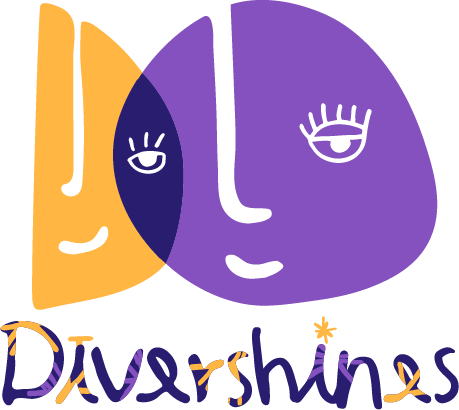Exploring the Autistic Mind: Myths vs. Realities

How often have you associated the autistic spectrum with a character from a series or movie or formed a mold of what, in your opinion and based on the information you have, a person with autism is like? Today’s article is a journey to the heart of one of the most misunderstood aspects of human neurodiversity.
In this publication, we will break paradigms about autism, debunking the most common myths and showcasing the realities of the condition, promoting a deeper understanding and appreciation of the diverse experiences of autistic people.
Breaking Paradigms – Myths vs. Realities of Autism:
Myth 1: Autistic people lack emotions
- Reality: like any human being, people with autism experience all kinds of emotions, which they might express differently. The Autism Research Institute emphasizes that understanding and interpreting these expressions is key to better communication.
Myth 2: Autism has a “cause”
- Reality: autism is not associated with a single cause or genetic factor. Research indicates that it is a complex interaction of genetic and environmental factors. To date, 31% of people are unaware that autism is a condition one is born with.
Myth 3: Autism is caused by poor parenting
- Reality: autism is a neurodevelopmental condition not caused by parenting styles. Neurodivergent people have a different way of perceiving things. Research from organizations like Autism Speaks highlights genetic and environmental factors as contributors.
Myth 4: Autistic people prefer to be alone
- Reality: while it is true that people with autism enjoy their moments of solitude and calm, they also seek social connections. Some individuals on the spectrum face challenges in social interaction, but they still enjoy and expect successful interactions. Resources like the National Autistic Society provide information on developing these social skills.

Myth 5: All autistic people have high IQs
- Reality: it is estimated that 10% to 15% of people on the spectrum have above-average IQs. However, autistic individuals often have restricted interests that make them true experts in their passions. Leveraging these specific talents is crucial to encouraging independence among neurodivergent people.
Myth 6: Autism can be cured
- Reality: autism is a lifelong neurological condition, not a disease, so we cannot refer to a “cure.” Early intervention and support can significantly improve the quality of life for neurodivergent individuals. Accepting neurodiversity is essential to providing an inclusive environment where people can thrive.
Myth 7: All autistic people have the same challenges
- Reality: autism is a spectrum, so each individual’s experience varies. Like all human beings, autistic people have strengths and areas of opportunity.

Myth 8: Girls are not autistic
- Reality: autism can manifest in individuals of any gender. Historically, there has been a higher incidence rate in boys, but this may be because girls often mask neurodivergent traits better. It is important to remember that autism does not end with childhood; it is a condition that accompanies a person throughout every stage of life.
Myth 9: Autistic people cannot have relationships
- Reality: many autistic individuals can form emotional connections, which they enjoy like any human being. The difference may lie in how they express and experience these emotions. Some autistic people have a logic-based behavior and may have alexithymia, a difficulty in expressing emotions, but this does not mean they are apathetic.
Debunking myths related to autism is essential for creating an inclusive society. Educating ourselves and understanding the condition is vital for the acceptance and support of people on the spectrum.
As we have said and read on various occasions, autism is a spectrum where each individual presents unique strengths and challenges. Myths, often rooted in outdated beliefs, create barriers that prevent neurodivergent people from fully developing in society.
Autistic people may experience the world differently and possess a wide range of skills and potentials. They often have incredible attention to detail, excellent memory, and creativity. We must work together to create a world where the autistic mind is not only explored but also celebrated for all its diversity and brilliance.
Frequently Asked Questions
Absolutely. With the right support, many autistic individuals lead fulfilling, independent lives, excel in various fields, and form meaningful relationships.
This is likely due to better awareness and improved diagnostic criteria rather than a real increase in prevalence.
No. Extensive research has debunked the myth linking vaccines to autism. Vaccines are safe and do not cause autism.
Yes, autistic individuals can and do form deep emotional bonds, although they may express their emotions differently.
No, autism is a neurodevelopmental disorder, not a mental illness. It involves differences in brain development and functioning.
References
- Instituto de Investigación del Autismo: www.autism.org
- Autism Speaks: www.autismspeaks.org
- “The unfounded myth surrounding autism and empathy”. Autism Speaks https://www.autismspeaks.org/blog/unfounded-myth-surrounding-autism-and-empathy
- National Autistic Society: www.autism.org.uk
- Centros para el Control y la Prevención de Enfermedades (CDC): www.cdc.gov
- Autism Society: www.autism-society.org
- National Autistic Society. https://www.autism.org.uk/


